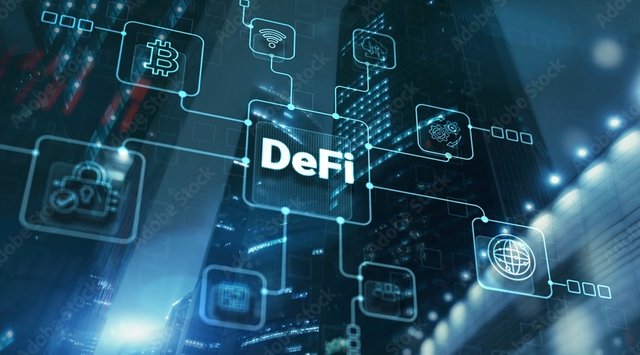The Future of DeFi
Decentralized Finance (DeFi) is a term used to describe digital financial transactions conducted on public blockchains, primarily Ethereum.
- Decentralized finance, which is based on cryptocurrencies like Ethereum, Bitcoin, and others, serves as an alternative to traditional fiat financial markets and instruments.
- It represents a new model for organizing financial services, transfers, and exchanges carried out in cryptocurrency.
- In DeFi, various financial activities such as borrowing, lending, investing, trading, and insurance can be performed without the need for traditional banks or financial institutions.
- A key characteristic of decentralized finance is the absence of a centralized regulator that oversees asset issuance, operations, and user control. Instead, these responsibilities are distributed across all participants in a decentralized manner using a peer-to-peer (P2P) approach. Financial transactions within
- DeFi are executed through self-executing smart contracts based on blockchains like Ethereum.
- The evolution of DeFi gained momentum in 2017 with the emergence of smart contract technology on the Ethereum network. Over time, it expanded to other blockchains. Notable DeFi projects, such as MakerDAO, introduced concepts like stablecoins, allowing users to issue and borrow loans using these "stable coins" through smart contracts. In 2020, Compound Finance introduced their digital token COMP, which rewarded lenders and borrowers within their platform, further enhancing DeFi's utility.
- Decentralized finance relies on blockchains and cryptocurrencies as its foundational infrastructure and units of account.
- Major cryptocurrencies, such as Ethereum and Bitcoin, enable DeFi platforms to create their own tokens based on these blockchains.
- Since most DeFi projects operate within the Ethereum ecosystem, the majority of DeFi tokens adhere to the Ethereum ERC-20 token standard.
